Buying your very first home can be overwhelming. To get you started, we've put together some helpful tips including a brief explanation on the type of loan language you might come across, some of the costs you might encounter when buying a house and the Government grants that could be available for you to take advantage of. However, if you prefer to talk to someone or apply for a pre-approved loan, our Lending Consultants are always here to help you through to process.
Searching for a home to buy? Download and print our Home Buyer's Checklist to help with your home selection.

The Home Guarantee Scheme (HGS) is an Australian Government initiative to support eligible home buyers who are Australian citizens or permanent residents to purchase a home sooner. The Scheme is administered by Housing Australia on behalf of the Australian Government. The HGS includes three types of Guarantees that you may be eligible for:
The First Home Owners' Grant is a national scheme funded by the states and territories and administered under their own legislation. Under the scheme, a one-off grant is payable to first home owners that satisfy all the eligibility criteria.

Parental or Family Assistance
We understand it may be difficult for some young people to achieve the dream of owning their own home. We also understand that sometimes parents want to help their children to achieve this dream. Helping a child with their first home purchase can be a rewarding experience for everyone. You'll be helping them gain some independence and get started on an investment for the future.
Providing a loan applicant can demonstrate they are able to save and make loan repayments in their own right, Auswide Bank can provide an opportunity for parents to provide support.
Depending on the circumstances, we may consider:
- A non-repayable gift from a parent towards the purchase. A contribution of a minimum 5% deposit is required for a home loan^. All this means is the loan applicant needs to provide 5% of the property purchase price or property valuation - whichever is less. The deposit contribution could come from a range of sources, but Auswide Bank will consider a non-repayable gift from a parent towards the purchase.
- a guarantee from a parent providing independent legal advice has been sought. This simply means that you as a parent will guarantee part of the loan and you will be liable for part of the loan if the repayments are not made.
- We may also allow you as a parent to contribute towards the direct costs of arranging the loan such as government, legal, insurance and application fees and charges.
Of course every family's circumstances are different and we want to make sure any commitment is a good one for all involved.
Contact one of our Lending Consultant's first for an obligation free discussion.
This is the amount of loan you are borrowing compared to the value of the asset, expressed in percentage terms.
For example, if you are borrowing $400,000 on a $600,000 home, your LVR is 66% ($400,000/$600,000). The bigger your deposit, the lower the LVR will be.
A fixed interest rate is a loan where the interest is set for the duration (term) of the loan, allowing the borrower to know exactly what their repayments will be.
In contrast, a variable interest rate may move up or down according to current economic conditions.
With these types of repayments, you are paying only the interest component for a certain period. The repayments are lower as you are not repaying the principal amount.
A Guarantor is a third party who enters into an agreement to pay your loan if you can't. If you are not able to pay back your loan, the bank can recover any outstanding amount from them.
This type of account is a transaction account linked to your home loan. The balance in this account offsets your loan amount, reducing the interest component.
For example, if your outstanding loan is $500,000 and you have $20,000 in this account, you will pay interest on $480,000.
An offset account can save you considerably in interest repayments over the life of your loan and help you pay it off sooner.
With this facility, any extra repayments you make on your loan can be accessed at a later date.
For example, if your minimum monthly repayments are $2,000 but you repay $3,000, you can access (redraw) the $1,000 if you need it.
Some people may choose to redraw money for large expenses such as a home renovation, while others may choose to retain the additional repayments to reduce the interest and term of the loan.
Upfront Costs
Upfront costs that can really add up when your bank account may already be stretched. Ensure you factor these into your budget beforehand to avoid any expensive surprises.
Upfront costs can vary between each state and territory so best to investigate fees based on where you live and your personal situation.
Most loans consist of principal and interest repayments. This means you are paying down both the principal balance (borrowed amount) as well as the accrued interest on the loan.
A building and pest inspection will determine the condition of the property and most importantly, its structural integrity. If the inspector finds a number of concerns such as asbestos, termites, cracks or drainage issues you might decide not to proceed with the purchase or request a reduction in the price.
Lenders Mortgage Insurance is a one-off premium that you can pay upfront or as part of your loan and is designed to give those with a lower deposit an opportunity to buy a property.
Essentially, LMI protects the lender if you are unable to pay for your loan in the future and is calculated based on the size of your deposit and how much you need to borrow. The best way to avoid paying LMI is to have a deposit of at least 20% of the property purchase price.
A loan application or establishment fee is a one-off payment per application, which may also include a valuation fee.
When buying or selling a home, a conveyancer or solicitor will arrange documentation for your sale or purchase. Often this includes preparation of the contract, title searches and organising settlement costs.
A mortgage registration fee is a government fee paid during settlement when a mortgage is established (buyer) or when the mortgage is discharged against the property (seller). The fee register’s the physical property as the security on the home loan, allowing any future buyers to check claims that may exist on the home.
A transfer fee, also required by the state government, covers the transfer of title of the property from one party to another.
Stamp duty, sometimes called transfer duty, is a tax charged by the state government when buying a house or transferring to a new owner. It’s one of the more expensive costs you will incur outside of the property purchase price and the amount paid can vary greatly depending on the price of the property and which state or territory you live in. If you’re a first-time home buyer, you may be eligible for stamp duty exemptions or concessions which can significantly reduce the cost.
You know you have to move, but don’t forget the cost? Depending on how far you’re moving and how much you own, moving fees can become quite costly.
If you have a few valuable pieces, you may also want to consider additional insurance just in case any dents, scratches or breakages happen along the way.
When you purchase an apartment or townhouse within a development, you will generally incur body corporate fees, which go towards the management and maintenance of the building or complex. Body corporate fees can vary depending on a few factors but may take into account the services provided and the type of dwelling.
Home loans don't need to be complicated. Our award-winning Basic Home Loan is a flexible, 'no fuss' home loan with a competitive variable rate.
- From 5.54%p.a. Interest rate
-
5.57%p.a.Comparison rate
A variable rate loan jam packed with features including an optional 100% offset account, redraw facility~ and extra payments so you can pay off your loan sooner.
- From 5.64%p.a. Interest rate
-
6.00%p.a.Comparison rate
Have some questions?
We’re here to help.


